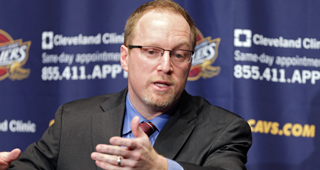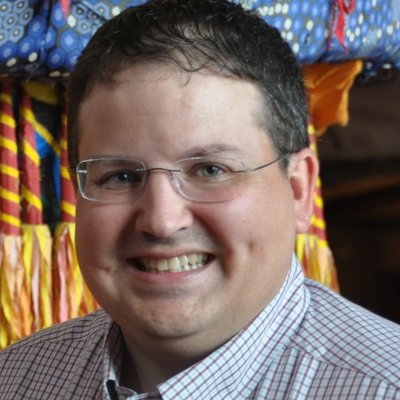LeBron James made good on his goal when he returned to the Cavaliers by bringing Cleveland their first championship in over fifty years. Combined with Kyrie Irving and Kevin Love, this latest “big three” iteration was surrounded by high performing role players and hungry veterans. A midseason coaching change from David Blatt to Tyronn Lue seemed to quell the infighting that had plagued the organization for a season and a half, and the team rallied in the Finals to win in seven games after being down to the Warriors 3-1.
For much of the season, it looked like the Cavs would be another good regular season team and the odds on favorite to represent the Eastern Conference in the Finals, but there were legitimate questions about their ability to get past the Warriors, Spurs or Thunder to win a title. For most of the season, James’ jumper had deserted him, leaving his shooting percentage on jumpers under 30% for the first time since his rookie season. After the All-Star break, things seemed to be getting back to normal and he finished just over 30%. In the postseason he shot it at 34%, which is exactly in line with his career norms. Picking apart James’ three-point shot is really the only flaw to be found in his game at this point. He’s still finishing inside at a high rate and rebounding and passing as well as he ever has. He picks his spots on defense more now than he has previously, but that is common for a superstar once he passes age thirty.
James has a player option this summer and will decline it to hit free agency once again. In the wake of the championship, he assured all associated with the Cavs, from ownership to fans, that he has no intention of leaving Cleveland. It is likely he’ll continue to sign 1+1 deals (one year guaranteed, followed by a player option) as a way to keep pressure on the Cavaliers to keep building solid teams around him. Rumors were that winning a title would take him off the hook back home and allow him to pursue other options. Maybe down the line this will happen, but for the near future he seems to be playing in Cleveland.
His running mates, Irving and Love, also seem likely to remain with Cleveland for the long term as well. Irving had another good season, despite missing the opening month and a half while recovering from knee surgery. His numbers were down just a bit, as he ceded more of the ball handling and playmaking to James, but he played better defense than ever. And in the playoffs, he stepped up to help carry the Cavaliers when James sat, including several big performances in the Finals. A spot on the USA Men’s Basketball team for the upcoming Olympics only further solidified Irving’s superstar status around the league.
Love, as recently as Game 4 of the Finals, seemed likely to be the scapegoat for another Cleveland failure. A high volume scorer and rebounder for Minnesota, he has struggled at times to find his place with the Cavs. Often relegated to jumpers off penetration from James and Irving, he hasn’t had the impact he did for the Timberwolves. Often maligned for his lack of defense, he’s actually been solid for Cleveland and no one will forget him sticking with Stephen Curry to force a contested look in the waning moments of Game 7.
Had Cleveland lost, it was likely that Love would have been dealt, and the search for a replacement piece would be underway. If nothing else, he bought himself some time into next season. If the struggles reappear it wouldn’t be a shock to see the Cavs entertain trade offers, but for now, he’ll be back unless they receive an overwhelming trade offer.
The rest of the roster was filled with role players who played their parts well, and in some cases, almost perfectly. J.R. Smith filled the shooting guard and irrational confidence roles to a T. He never hesitates to take an open shot, no matter the situation. All champions need players who are able to step up beyond their normal capabilities and Smith was that guy for the Cavs. He opted out of his contract for next year and his services will be in demand around the league. He’s likely to return to the Cavs, provided they give him a fair offer, as he enjoys his teammates and the city.
Tristan Thompson filled out the starting five for the second half of the year and the postseason. When you have three stars, you need players who are willing to do the dirty work and Thompson is that guy for the Cavs. He defends, rebounds, sets screens, runs the floor and gets garbage points galore. His ability to switch on smaller players, including point guards, is a key part of the Cavaliers defense. As long as James, Irving and Love are with the Cavaliers, Thompson has a home as the unsung member of the starting group.
Off the bench, Cleveland mixed and matched their way throughout the regular season and the playoffs. Timofey Mozgov, a key part of last year’s Finals run, was more or less a forgotten man, especially after Thompson replaced him as a starter. As teams continue to downsize and play more small ball, Mozgov finds himself struggling to stay on the floor. He’s not a consistent enough offensive player to take advantage of his size and his lack of quickness puts him at a disadvantage on the defensive end. It was once thought that the Cavs would certainly retain him as a free agent this summer, but they now seem likely to let him test the market and he’ll probably leave for a better offer.
Matthew Dellavedova was probably the team’s most consistent reserve. He continues to be a pest defensively and his offensive game has come a long way in a few years. He’s now a consistent threat from the outside, if not a playmaker himself. With players in demand who can shoot and defend both guard positions, he’ll have plenty of offers. As a restricted free agent, the Cavaliers will have to weigh upping their likely Luxury Tax payment against losing Dellavedova.
Expected to be an end of the bench veteran, Richard Jefferson played a key role all year for Cleveland. He was especially good in the playoffs in small lineups. His intention was to retire, but his inspired play and fit in Cleveland have him mulling a return engagement, probably for the Veteran Minimum or a slight bump.
The other veterans, Channing Frye and Iman Shumpert, are solid players for any team’s bench unit. Frye can offer shooting from the big positions and Shumpert remains a good defender on the wing. They’ll both likely be back in reserve roles, as the Cavs would like to upgrade both players but their contracts make it fairly unlikely any team is trading for them.
The natural inclination when you win a championship is to bring all the guys back and make a run at another title. The Cavaliers seem no different. Barring something unexpected, all of the contributors, outside of Mozgov and possibly Dellavedova, should be back. They’ll likely be supplemented with some veterans who sign on to chase a ring. Even if the Cavs don’t do anything major this summer, the fans won’t care. They have a title for the first time in most of their lifetimes and nothing can take that feeling away.
Offseason Details
Guaranteed Contracts (8): Channing Frye, Kyrie Irving, Sasha Kaun, Kevin Love, Jordan McRae, Iman Shumpert, Tristan Thompson, Mo Williams
Partial/Non-Guaranteed Contracts (1): Dahntay Jones
Potential Free Agents (6): Matthew Dellavedova (RFA), LeBron James (UFA - Player Option), Richard Jefferson (UFA), James Jones (UFA), Timofey Mozgov (UFA), J.R. Smith (UFA)
“Dead” Money on Cap (0): None
First Round Draft Picks: None
Maximum Cap Space: $15,819,494
Projected Cap Space: None. $35,148,660 over



